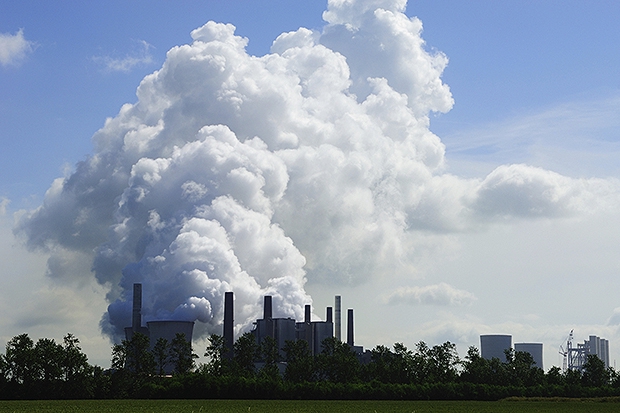Peter Liese: Commitment to emissions trading as its most important basis / European Commission to take the lead in negotiating international environmental agreements in future / Target of only allowing climate-neutral cars from 2035 remains, but should be technology-neutral, i.e. can also be achieved with e-fuels, f.ex. / Include negative emissions in emissions trading / More financial support for citizens and companies in the transformation process
The largest political group in the European Parliament (EPP, Christian Democrats) wants to develop the European Union's Green Deal into a Green Growth Deal. This is a key decision taken by the group at a closed meeting in preparation for the new legislative period. The group is committed to the European Union's climate targets for 2030 and the climate neutrality target for 2050, but wants to achieve these targets with less bureaucracy and greater dialogue with all stakeholders. Openness to technology is also important to the group. After intensive discussions, it was made clear in the paper that the goal of only allowing climate-neutral cars to be registered as of 2035 should remain, but that the existing ban on the combustion engine should be replaced by a technology-neutral approach, so that climate-neutral fuels such as e-fuels should also be permitted and new cars that only run on these fuels can also be registered after 2035.
The EPP is committed to emissions trading as a central, market-based instrument of European climate policy, but wants to develop it further by also including negative emissions. "Some companies are already extracting CO2 from the atmosphere and using it to produce building materials, for example. However, we do not have sufficient incentives for these technologies in the European Union. Climate scientists say that we urgently need them in the future. That's why we need to create incentives now so that they are available on a large scale and at lower cost when needed. At the same time, we are offering industry, which will no longer be able to buy certificates after 2039 under the existing regulation, an initial opportunity to compensate for any residual emissions. This is extremely important because otherwise energy-intensive companies, such as those in the chemical industry, would not be able to realise their investments in Europe." A particularly important point for the group is that support for citizens and businesses, especially small and medium-sized enterprises, farmers and fisheries, should be improved during the transformation. "Many Member States use the revenue from emissions trading for their own political priorities. It must be clear that 100% of the money must be earmarked for climate protection measures and social measures. Especially people who work hard but still earn below average need targeted support in the transition to climate-neutral products," continued the MEP.
A particularly innovative idea of the European People's Party is that in future the European Commission and not the Council should take the lead in negotiating international environmental agreements, e.g. climate protection agreements: "We need a more European approach to climate policy and the Commission's role at international level must be strengthened," emphasised Liese. Following discussions, the parliamentary group also decided that the deforestation regulation should enter into force on 1 January next year or later and that existing problems must be solved in the transition period available in that time. "We want to make our contribution to reducing deforestation worldwide. But the regulation is not applicable in its current form. There are huge problems with third countries. Above all, small forest owners in Europe and small coffee farmers in Latin America, for example, cannot deal with the regulations. It is better to postpone the regulation and revise it again than to run blindly into a disaster and discredit European environmental and climate policy,” Liese emphasised. Other points in the paper concern the splitting of the Industrial Emissions Directive according to which agriculture and industry are to be treated separately in future as well as the revision of the protected status of some animals in European nature conservation law.
Peter Liese states: "For us as Christian Democrats, it is clear that the Green Deal and in particular the climate targets should not be reversed. But the result of the election and the many voices raised by citizens during the election campaign show that we need to make corrections and respond more to people's concerns and needs."
Contact for questions: This email address is being protected from spambots. You need JavaScript enabled to view it.


